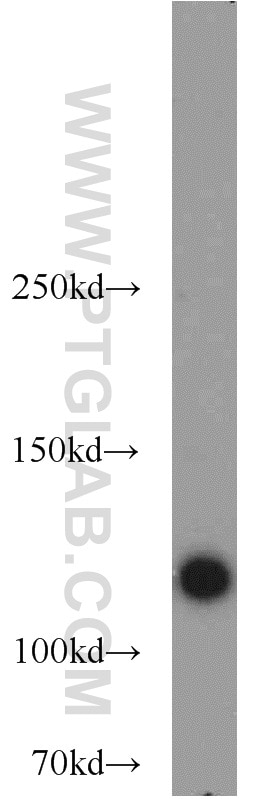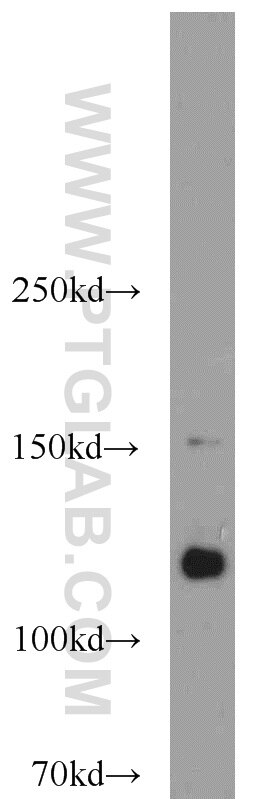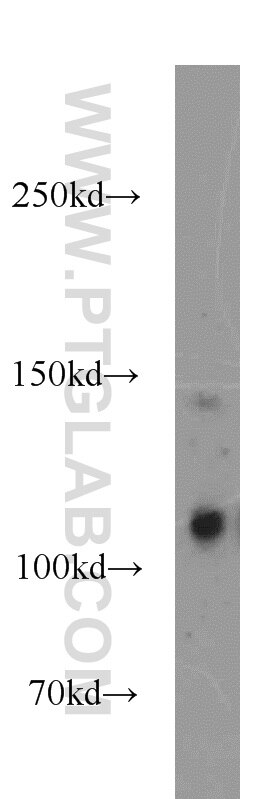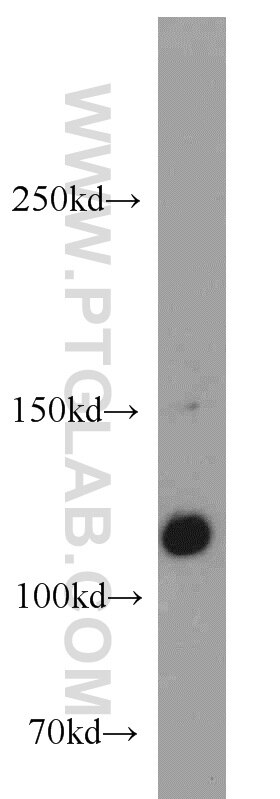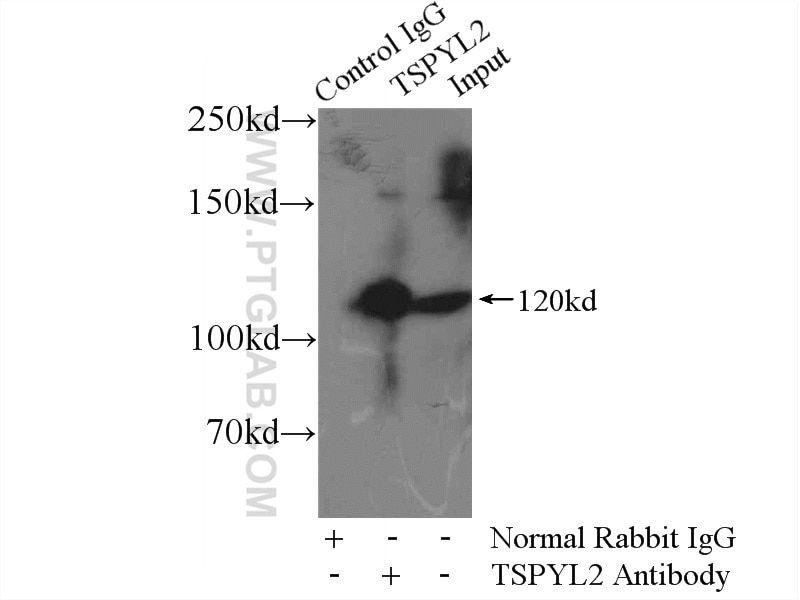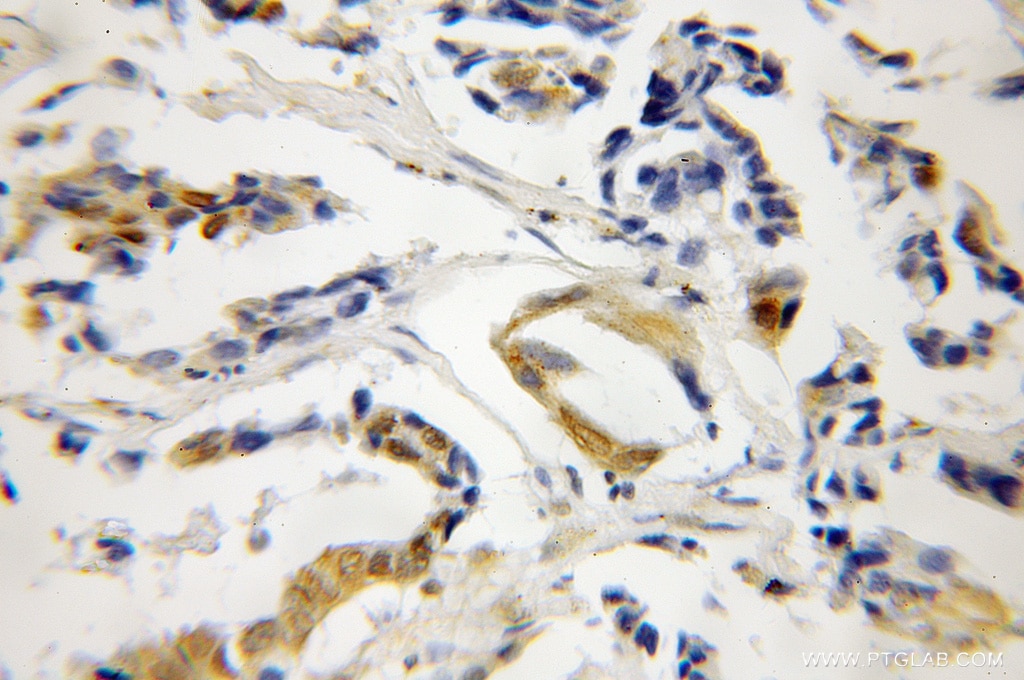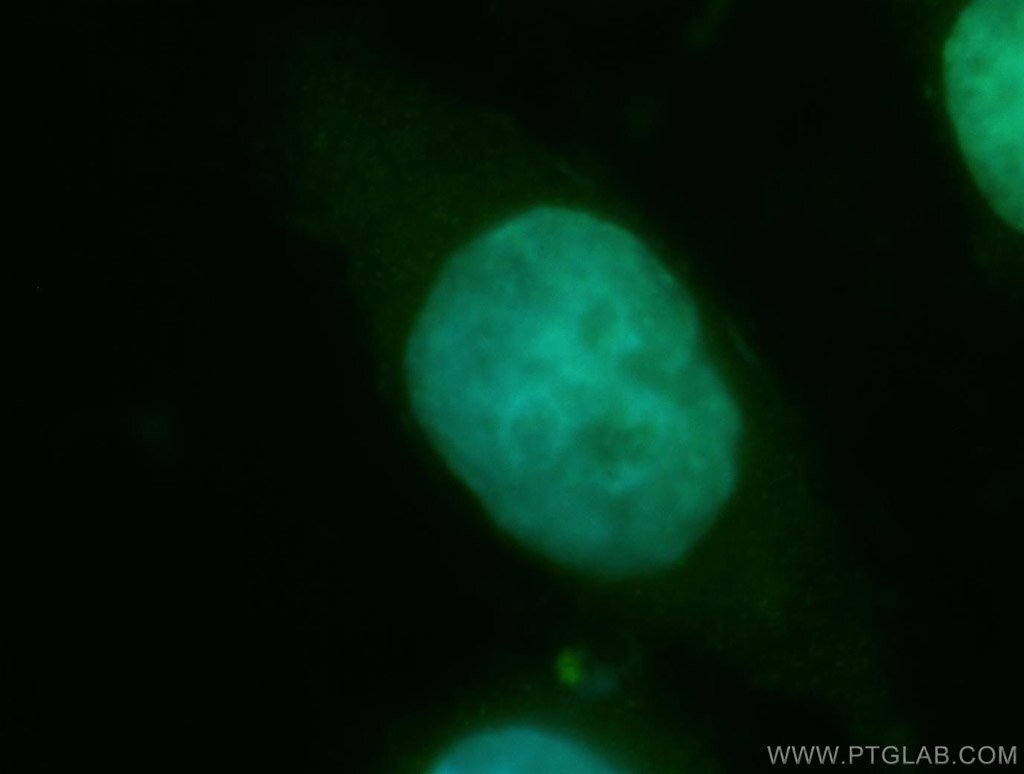- Phare
- Validé par KD/KO
Anticorps Polyclonal de lapin anti-CDA1
CDA1 Polyclonal Antibody for WB, IP, IF, IHC, ELISA
Hôte / Isotype
Lapin / IgG
Réactivité testée
Humain et plus (1)
Applications
WB, IHC, IF/ICC, IP, CoIP, ELISA
Conjugaison
Non conjugué
N° de cat : 12087-2-AP
Synonymes
Galerie de données de validation
Applications testées
| Résultats positifs en WB | cellules HeLa, cellules DU 145, cellules HEK-293, cellules MCF-7 |
| Résultats positifs en IP | cellules HEK-293 |
| Résultats positifs en IHC | tissu de cancer du poumon humain il est suggéré de démasquer l'antigène avec un tampon de TE buffer pH 9.0; (*) À défaut, 'le démasquage de l'antigène peut être 'effectué avec un tampon citrate pH 6,0. |
| Résultats positifs en IF/ICC | cellules HeLa |
Dilution recommandée
| Application | Dilution |
|---|---|
| Western Blot (WB) | WB : 1:500-1:2000 |
| Immunoprécipitation (IP) | IP : 0.5-4.0 ug for 1.0-3.0 mg of total protein lysate |
| Immunohistochimie (IHC) | IHC : 1:20-1:200 |
| Immunofluorescence (IF)/ICC | IF/ICC : 1:20-1:200 |
| It is recommended that this reagent should be titrated in each testing system to obtain optimal results. | |
| Sample-dependent, check data in validation data gallery | |
Applications publiées
| KD/KO | See 1 publications below |
| WB | See 8 publications below |
| IHC | See 1 publications below |
| IF | See 2 publications below |
| CoIP | See 2 publications below |
Informations sur le produit
12087-2-AP cible CDA1 dans les applications de WB, IHC, IF/ICC, IP, CoIP, ELISA et montre une réactivité avec des échantillons Humain
| Réactivité | Humain |
| Réactivité citée | Humain, souris |
| Hôte / Isotype | Lapin / IgG |
| Clonalité | Polyclonal |
| Type | Anticorps |
| Immunogène | CDA1 Protéine recombinante Ag2722 |
| Nom complet | TSPY-like 2 |
| Masse moléculaire calculée | 693 aa, 79 kDa |
| Poids moléculaire observé | 120 kDa |
| Numéro d’acquisition GenBank | BC024270 |
| Symbole du gène | CDA1 |
| Identification du gène (NCBI) | 64061 |
| Conjugaison | Non conjugué |
| Forme | Liquide |
| Méthode de purification | Purification par affinité contre l'antigène |
| Tampon de stockage | PBS avec azoture de sodium à 0,02 % et glycérol à 50 % pH 7,3 |
| Conditions de stockage | Stocker à -20°C. Stable pendant un an après l'expédition. L'aliquotage n'est pas nécessaire pour le stockage à -20oC Les 20ul contiennent 0,1% de BSA. |
Informations générales
TSPYL2 (also known as CINAP, CDA1, TSPX or DENTT) is a new member of the nucleosome assembly protein superfamily. TSPYL2 binds histones and facilitates nucleosome assembly. TSPYL2 is expressed in various tissues, highly in the pituitary gland and moderately in the adrenals, brain, testis, and ovary. Immunohistochemical staining analysis for TSPYL2 showed differential cytoplasmic and nuclear staining patterns in several cell types. Downregulated expression of TSPYL2 has been observed in several tumors, which suggests its role as a tumor suppressor. Although it is predicted that TSPYL2 has a molecular mass of 79.43 kDa, it is found that mammalian TSPYL2 appears at a size of 120 kDa by western blot analysis. The abundant acidic amino acid regions in TSPYL2 may cause its aberrant migration. In addition, the TSPYL2 protein is unstable and sensitive to proteasomal degradation.
Protocole
| Product Specific Protocols | |
|---|---|
| WB protocol for CDA1 antibody 12087-2-AP | Download protocol |
| IHC protocol for CDA1 antibody 12087-2-AP | Download protocol |
| IF protocol for CDA1 antibody 12087-2-AP | Download protocol |
| IP protocol for CDA1 antibody 12087-2-AP | Download protocol |
| Standard Protocols | |
|---|---|
| Click here to view our Standard Protocols |
Publications
| Species | Application | Title |
|---|---|---|
Cell Glioma stem cell proliferation and tumor growth are promoted by nitric oxide synthase-2. | ||
Cell Death Differ TSPYL2 is an essential component of the REST/NRSF transcriptional complex for TGFβ signaling activation.
| ||
PLoS One The X-linked tumor suppressor TSPX interacts and promotes degradation of the hepatitis B viral protein HBx via the proteasome pathway. | ||
Stem Cells Int Expression of Genes Related to Germ Cell Lineage and Pluripotency in Single Cells and Colonies of Human Adult Germ Stem Cells. | ||
Oncotarget The X-linked tumor suppressor TSPX downregulates cancer-drivers/oncogenes in prostate cancer in a C-terminal acidic domain dependent manner. | ||
J Ginseng Res Ginsenoside Rg3 increases gemcitabine sensitivity of pancreatic adenocarcinoma via reducing ZFP91 mediated TSPYL2 destabilization |
